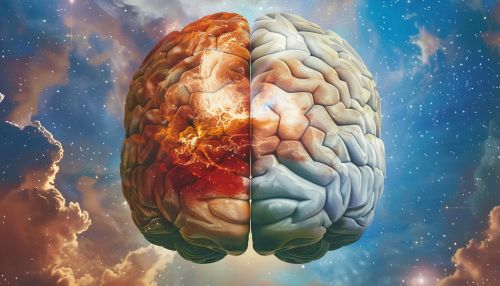Psychic Apparatus
Overview
The psychic apparatus is a theoretical construct in psychoanalysis that refers to the framework and operations of the human mind as described by Freud. It is composed of three main components: the id, the ego, and the superego, each of which plays a crucial role in human thought, behavior, and personality development.


The Id
The id is the most primitive component of the psychic apparatus and is present from birth. It operates on the pleasure principle, seeking immediate gratification of all desires, wants, and needs. If these needs are not satisfied immediately, the result is a state of anxiety or tension.
The Ego
The ego is the component of the psychic apparatus that deals with reality. It operates on the reality principle, working to satisfy the id's desires in a manner that is both socially acceptable and realistic. The ego uses reasoning to make decisions and has the ability to delay gratification.
The Superego
The superego is the moral component of the psychic apparatus. It incorporates the moral standards and values of parents and society and works to control the impulses of the id. The superego strives for perfection and judges actions and feelings leading to feelings of pride, satisfaction, guilt, and shame.
Interactions of the Id, Ego, and Superego
The interactions between the id, ego, and superego are complex and dynamic. The ego often has to mediate between the demands of the id and the superego, leading to conflict and anxiety. This conflict is at the heart of Freud's theory of psychosexual development and is believed to shape personality and behavior.
Criticisms and Revisions
While Freud's theory of the psychic apparatus has been influential in the field of psychology, it has also been the subject of criticism. Some critics argue that Freud's theories are untestable and lack empirical support. Others have proposed revisions to Freud's model, such as the object relations theory and the ego psychology.
